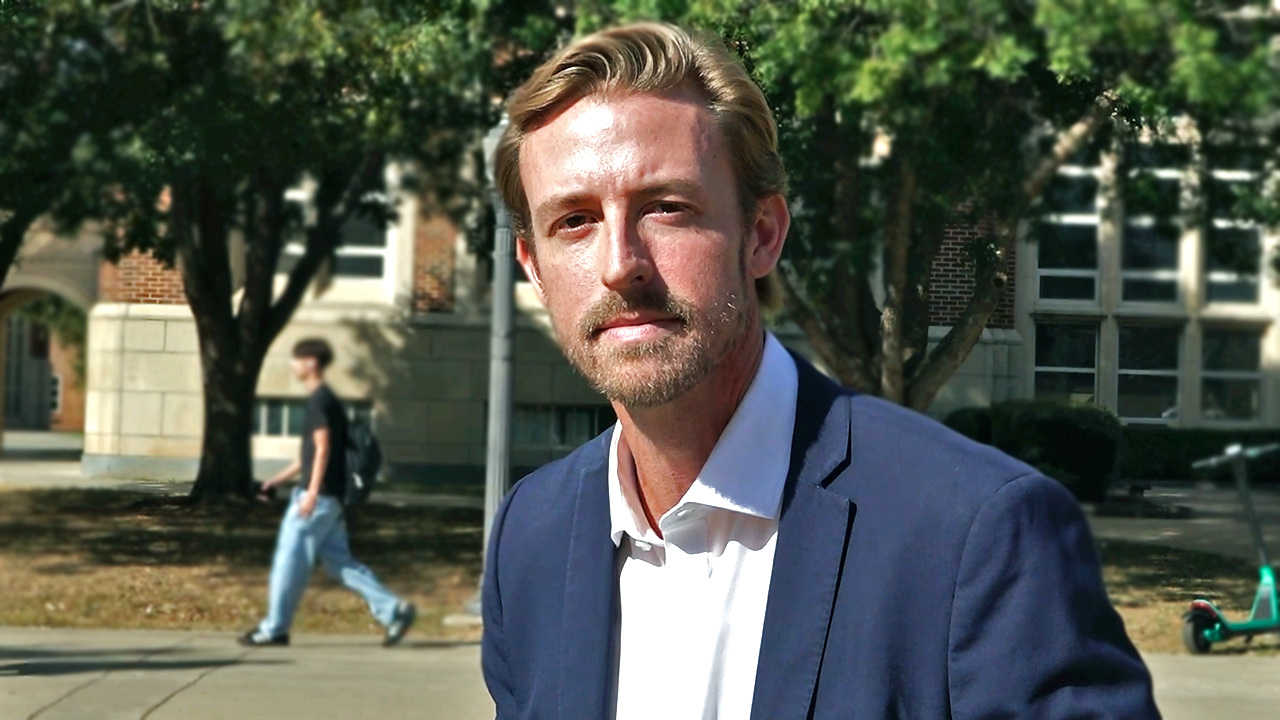Copyright The Philadelphia Inquirer

Bucknell University emeritus professor William Gruver likes many pieces of the compact that President Donald Trump has asked universities to sign in exchange for preferential consideration for federal funding. “A tuition freeze would be noble,” said Gruver, who, despite facing pushback, helped bring conservative speakers to Bucknell when he worked there. “Having professors with different ideological points on the political spectrum would be noble.” But, he said, he would not advise a private university to sign the Trump administration’s Compact for Academic Excellence in Higher Education, initially offered to nine colleges, including the University of Pennsylvania. In fact, he encouraged the chairman of the board at his alma mater, Dartmouth College, also among the initial nine, to decline. Both Dartmouth and Penn refused the offer, along with most others. » READ MORE: Penn releases letter rejecting Trump compact “For the private schools, it’s just a bridge too far,” said Gruver, now a senior fellow at the Open Discourse Coalition, founded in 2020 by Bucknell alumni concerned about inadequate viewpoint diversity on college campuses. “If you’re a private organization, you should make your own decisions on these matters. … The way you really cure societal ills is not by government mandates, but by action from boots on the ground.” Gruver is one voice in an ongoing discussion about the compact, which has since been offered informally to all colleges but so far has attracted few signers. In the Philadelphia region, the Valley Forge Military College has expressed interest. » READ MORE: Valley Forge Military College aims to join Trump’s anti-‘woke’ compact amid uncertain future The compact has some worthy ideas, higher education experts say, such as addressing the cost of college — something that is top of mind for the public. But the compact requires freezing tuition for five years, which many colleges are reluctant to do, especially given other federal demands, including an increased endowment tax for some and cuts in federal research funding. “They diagnosed the right problems, but they prescribed all the wrong cures,” said Jonathan Fansmith, senior vice president for government relations and national engagement at the American Council on Education (ACE), a higher education advocacy group. Examining high tuition costs Rather than freezing tuition, which would probably result in a disproportionate increase at a later time, the government should be talking about addressing the underlying reasons for the cost, said former Penn Graduate School of Education professor Joni Finney, long a critic of high tuition prices, including costs at Penn. That would take a detailed look at factors driving the cost increase, she said. “This is a problem higher education does own,” said Finney, also former director of the Institute for Research on Higher Education at Penn. “But unless you go after the cost problem itself, freezing tuition alone will not get us there. This is just one on a list of many things that are not very well thought through [in Trump’s compact].” Gruver opposes a government-mandated tuition freeze, too. “That’s a form of price control, and I don’t believe in government price controls,” he said. “The market should set the price.” Standardized tests, neutrality, and more Before the compact was proposed, some colleges had already acted on some of the areas identified in it. Elite schools, including Penn, have already reinstituted the requirement that standardized test scores be submitted for admission, as the compact requires. Penn, like many colleges, had paused the requirement when the pandemic hit. And Penn has adopted a position of institutional neutrality on world events, meaning the school will not make statements unless they have a direct effect on Penn operations. The compact requires institutional neutrality. » READ MORE: Penn says it will no longer respond publicly to world events, unless they directly affect the university Grade inflation is another area targeted in the compact that some higher education experts agree is a problem. But “I don’t want the federal government monitoring our ‘commitment to grade integrity’ — to quote the Trump compact — or penalizing us if we fall short," wrote Penn history of education professor Jonathan Zimmerman in an opinion piece for The Inquirer. For some, a federal mandate on matters like pricing, admissions, and curriculum is unacceptable. “Even if the loyalty oath were something that we all agree with, that is not how democracies are supposed to work,” said Jessa Lingel, president of the Penn chapter of the American Association of University Professors. She is concerned that universities that refused to sign the compact, including Penn, left the door open for negotiation. “They seem to all be signaling ‘we would be willing to talk further about some of these issues,’” she said. “My concern is that in doing so, schools are going to be complicit in their own future oppression as they help the government write a better compact.” ‘Subject to multiple interpretations’ Dickinson College president John E. Jones III, who spent decades as a lawyer and federal judge, said much of the compact is so “amorphous” and “subject to multiple interpretations” that he would never advise signing it. “Let alone that the agreement is being monitored by the U.S. Department of Justice,” which, he said, “is targeting, quite frankly, individuals in thin or potentially non-meritorious prosecutions.” “As the effective CEO of this college, why would I subject the college to scrutiny by a Department of Justice that has been anything but consistent most recently?” said Jones, who was appointed a federal judge by former President George W. Bush in 2002 and in 1994 served as cochair of Pennsylvania Republican then-Gov. Tom Ridge’s transition team. “To use a nonlegal phrase, I’d have to have my head examined to bring the weight of the federal government on this private institution.” Dickinson was not among the nine schools initially asked to sign the compact. » READ MORE: Philly-area colleges see dips in Black, Latino students post Supreme Court decision on race-conscious admissions Jones described some areas of the compact, such as the requirement for admissions based on merit, as “superfluous” because colleges are already adhering to the 2023 Supreme Court ruling that prohibits race-based admissions. And he said other areas, such as capping undergraduate international enrollment at 15%, are already being achieved through policies the Trump administration has put in place, including the pause on student visa interviews earlier this year. Dickinson’s international applications are down, he said. “They’re going to achieve that goal without these agreements because international students are simply not going to apply,” he said. Jones also pointed to what he saw as contradictory positions by the Trump administration. The agreement it recently struck with the University of Virginia plainly states the importance of academic freedom, he said, and that the United States “does not aim to dictate the content of academic speech or curricula.” Yet the compact makes no mention of academic freedom and attempts to regulate academic speech and perhaps curriculum, he said. The compact, for example, states that schools would have to shut down departments that “punish, belittle,” or “spark violence against conservative ideas.” » READ MORE: Penn rejects Trump compact offered to colleges What’s next? The federal Education Department initially gave the nine schools until Oct. 20 to provide feedback on the compact and until Nov. 21 to accept or reject it. It’s unclear which penalties colleges might face for not signing or what step the Education Department might take next. A White House official told the Washington Post that colleges would not lose federal funding for not signing. “The issue could be quietly abandoned, though that’s not the most likely outcome,” said Robert Kelchen, a professor in educational leadership and policy studies at the University of Tennessee, Knoxville. The Education Department might try to get enough colleges to sign and receive funding benefits that others eventually will follow, he said. The department also could adopt a more forceful approach, requiring elements of the compact in order to get federal funding, though that likely would face court challenges, he said. A better approach would have been to get some schools to agree before releasing it publicly and then try to build support for it, he said. “Nobody is pretending there aren’t real challenges,” ACE’s Fansmith said. “A really good idea would have been to reach out and say, ‘We have real concerns about these things,’ bring people to the table, and think about actual practical solutions.” That, he said, would require a partnership rather than targeted, highly politicized efforts. Gruver taught at Bucknell for 27 years, holding the chair in global commerce, strategy, and leadership studies. But he was not tenured and his contract was not renewed, he said, and one of his last acts was bringing conservative commentator Heather Mac Donald to campus in 2019. Mac Donald, a scholar at the Manhattan Institute, had recently written The Diversity Delusion: How Race and Gender Pandering Corrupt the University and Undermine Our Culture. Her talk drew protest. Gruver said the coalition he now works with visits college campuses and encourages them to improve viewpoint diversity. That kind of effort could lead to action from within the institution, which has more chance of driving long-term institutional change than a compact from the federal government, he said. “I don’t think you can cure these things from the top down,” he said.



